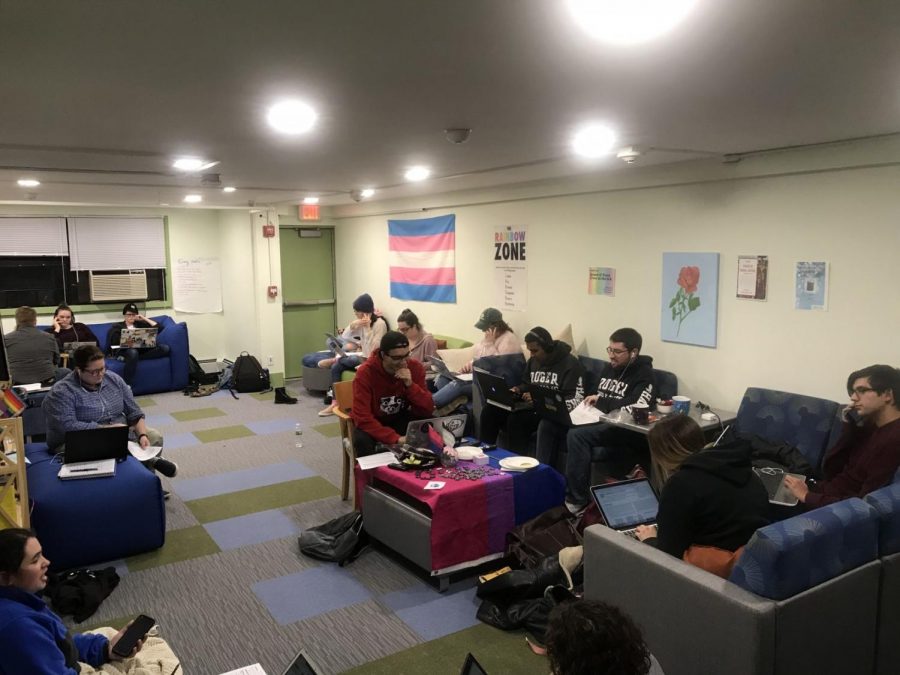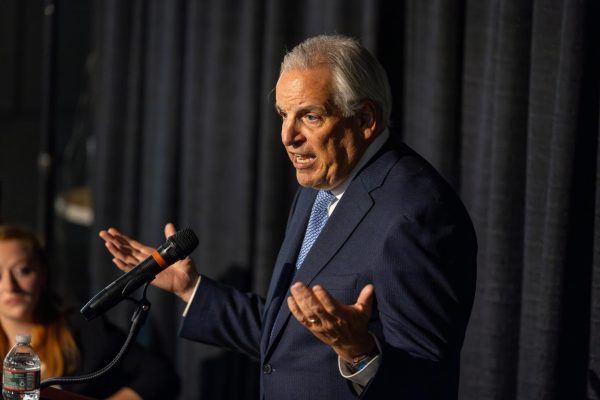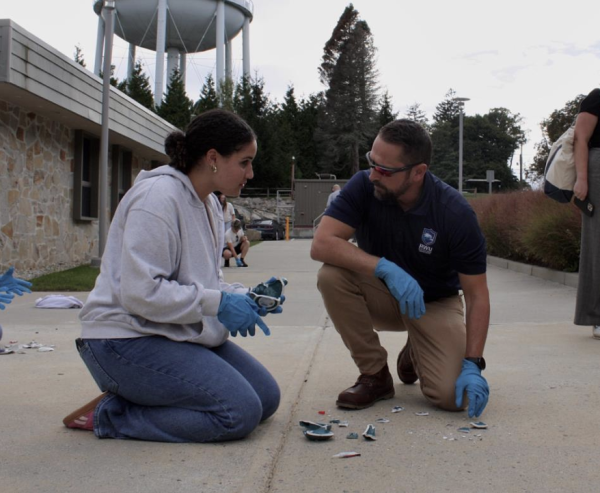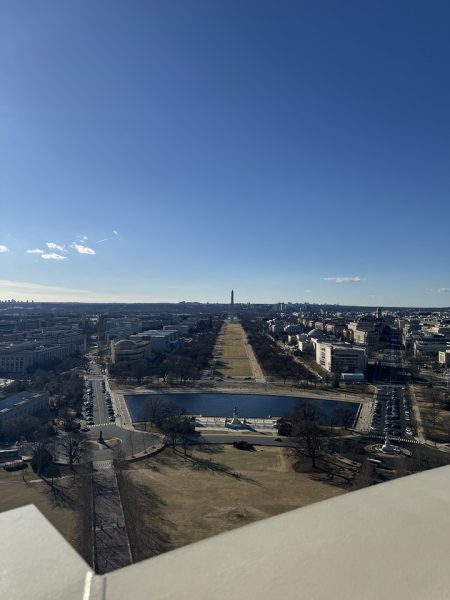RWU students phone bank to protect trans rights in Massachusetts
Kayla Ebner | Editor-in-Chief
Transgender rights are in danger in Massachusetts.
On Nov. 6, people in Mass. will vote on three questions, one of which has the potential to repeal the 2016 state law that banned discrimination against transgender people in public places, including restaurants, malls and bathrooms.
On Wednesday, Oct. 24, a group of RWU students who are members of the Sexuality and Gender Alliance (SAGA) e-board set up an on-campus phone bank at the Q-TRAC in Maple Hall to call Massachusetts residents, asking them to vote “yes on 3.”
Phoebe Thaler, senior and member of SAGA’s e-board, described the importance of this vote to her personally as a trans person.
“I want to be able to eat in restaurants, shop in stores, use public transportation, and also use the most comfortable bathroom free of discrimination,” she said. “As an RWU student and someone who has a house in the Berkshires this is incredibly scary because these rights could be taken away in a state that I often am in, but I also know that if a ‘no’ vote prevails many other states could double their efforts to take away our rights and discriminate against us.”
Zachary Wluka, sophomore SAGA e-board member, agrees and noted that they have worried about their own safety in public places before.
“I have a personal connection to this because as a recently out person of a non-binary orientation who identifies as gay and resides in the great state of Massachusetts I have [had] to think increasingly about these issues,” they said. “We, the trans community, are just like everyone else and we simply want to be able to use the bathroom in peace as all people should be able to do.”
This law was passed in 2016 when Republican Governor Charlie Baker signed the bill, guaranteeing that transgender people would be able to use the bathrooms and locker rooms that correspond with the gender they identify with.
The law addresses safety concerns that were raised by critics of the bill, including instructions that the state attorney general is advised to give law enforcement on how to deal with individuals who are claiming gender identity for an “improper purpose.”
A “yes” vote on Question 3 will keep the current law in place, continuing protection for transgender people. A “no” vote would repeal that part of the law.
Gabby Porcaro, Assistant Director for LGBTQ+ Student Initiatives, said that since the law was passed, there has not been a documented instance of a trans person entering any type of public facility and assaulting a cisgender person, someone whose sense of personal identity and gender corresponds with their birth sex.
“That’s a lot of this fear-mongering that we as a society have created against our trans folks,” she said. “What we do know is that there are multiple documented cases of trans people being physically attacked when they’re merely just trying to live their lives. It comes based out of fear, but it’s mostly based out of hate.”
Question 3 on Nov. 6 will determine whether or not the trans community will continue to be protected in public spaces in Mass., and may potentially influence other states decisions on similar issues as well. Porcaro said that it’s important to get out and vote “yes on 3” if a person is a Mass. resident.
“I am a cisgender person but my trans siblings are my siblings,” said Porcaro. “I’m not just going to stand idly by and watch human rights be defeated.”
For more information on Question 3, please visit https://www.freedommassachusetts.org/.






